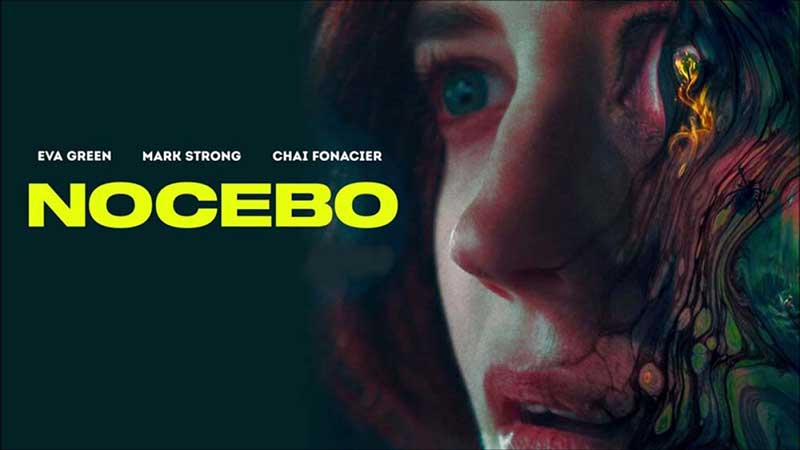 Movies have always been a powerful medium for storytelling, invoking a range of emotions and captivating audiences around the world. While we often associate movies with entertainment, they can also shed light on various aspects of human psychology and behavior. One such intriguing concept explored in movies is the phenomenon known as the nocebo effect. In this article, iqnect will delve into the concept of nocebo in movies, examining its definition, examples, and implications for both filmmakers and viewers.
Movies have always been a powerful medium for storytelling, invoking a range of emotions and captivating audiences around the world. While we often associate movies with entertainment, they can also shed light on various aspects of human psychology and behavior. One such intriguing concept explored in movies is the phenomenon known as the nocebo effect. In this article, iqnect will delve into the concept of nocebo in movies, examining its definition, examples, and implications for both filmmakers and viewers.
Introduction: Unraveling the Nocebo Effect
Movies have a remarkable ability to evoke strong emotions and immerse viewers in captivating narratives. However, beneath the surface, they can also tap into the intricacies of human psychology. The concept of the nocebo effect, while not as well-known as its counterpart, the placebo effect, offers a fascinating lens through which to understand the impact of negative expectations on our well-being. In this article, we will explore how the nocebo effect is portrayed and utilized in movies, examining its psychological underpinnings and implications.The Nocebo Effect Explained
The nocebo effect refers to the phenomenon where negative expectations and beliefs about a treatment or situation can lead to undesirable outcomes or adverse effects. Essentially, if we believe that something will cause harm or have negative consequences, our minds and bodies may respond accordingly. This can manifest in a variety of ways, including physical symptoms, heightened anxiety, and reduced performance.Nocebo in Movies: Portrayal and Impact
Movies have a unique ability to create immersive experiences and influence our emotions. When it comes to depicting the nocebo effect, filmmakers often leverage suspense, anticipation, and the power of suggestion to create a sense of unease and evoke negative expectations in the viewer. By skillfully crafting narratives and utilizing cinematography, sound design, and visual effects, filmmakers can amplify the impact of the nocebo effect on the audience.Psychological Manipulation and Nocebo
In the realm of movies, psychological manipulation is a powerful tool that can heighten the impact of the nocebo effect. Filmmakers employ various techniques such as foreshadowing, misdirection, and the manipulation of characters’ beliefs to create a sense of dread and anticipation. By skillfully manipulating the audience’s expectations, movies can elicit visceral reactions and amplify the negative effects of the nocebo phenomenon.The Role of Suspense and Anticipation
Suspense and anticipation play a crucial role in magnifying the nocebo effect in movies. By skillfully building tension and creating an atmosphere of uncertainty, filmmakers can heighten the viewer’s negative expectations and amplify their emotional response. This heightened state of anticipation can make the eventual outcome even more impactful, leaving a lasting impression on the audience.Ethical Considerations for Filmmakers
While the use of the nocebo effect in movies can be an effective storytelling technique, filmmakers must also consider the ethical implications. The deliberate manipulation of the viewer’s emotions and expectations carries a responsibility to ensure that the impact is temporary and does not result in lasting harm. Balancing the desire for captivating storytelling with ethical considerations is crucial to maintaining the trust and well-being of the audience.
The Viewer’s Experience: Psychological Responses
When viewers are exposed to the portrayal of the nocebo effect in movies, their psychological responses can vary. Some individuals may become more susceptible to negative expectations and experience heightened anxiety or discomfort. Others may be more resilient and recognize the fictional nature of the narrative, allowing them to engage with the story without significant psychological repercussions. Understanding these diverse responses is vital in catering to the needs of different viewers.The Power of Suggestion in Movies
Movies have a unique ability to suggest ideas and shape our perceptions. By skillfully planting seeds of doubt or negative expectations, filmmakers can influence the viewer’s interpretation of events and characters. This power of suggestion can fuel the nocebo effect, leading to heightened emotional responses and a deeper engagement with the narrative. Filmmakers must be mindful of this influence and utilize it responsibly to create impactful storytelling experiences.Addressing the Nocebo Effect: Filmmaking Best Practices
To navigate the portrayal of the nocebo effect effectively, filmmakers can employ several best practices. Providing contextual information, offering disclaimers, and incorporating positive counterbalancing elements can help mitigate the potential negative impact on viewers. By creating a balanced narrative that acknowledges both the potential risks and benefits, filmmakers can foster a more nuanced understanding of the nocebo effect and its implications.The Intersection of Nocebo and Cinema Therapy
Cinema therapy, a therapeutic approach that utilizes movies to promote emotional well-being, intersects with the concept of the nocebo effect. When employed judiciously, movies can serve as a tool for personal growth and self-reflection. However, caution must be exercised to avoid triggering adverse psychological responses. Integrating an awareness of the nocebo effect into cinema therapy practices can enhance their efficacy and ensure a safe and positive experience for participants.
Case Studies: Notable Movies with Nocebo Themes
Several notable movies have explored the concept of the nocebo effect, illustrating its impact on characters and storylines. Examples include psychological thrillers that play with the viewer’s expectations, horror films that evoke a sense of dread, and medical dramas that delve into the power of suggestion in healthcare settings. Analyzing these case studies can provide valuable insights into how the nocebo effect is effectively portrayed and utilized in storytelling.Debunking Misconceptions: Nocebo vs. Placebo
The nocebo effect is often misunderstood and conflated with its counterpart, the placebo effect. While both phenomena involve the influence of expectations on outcomes, they have distinct characteristics. The placebo effect is associated with positive expectations leading to beneficial outcomes, whereas the nocebo effect stems from negative expectations resulting in adverse effects. Understanding this distinction is crucial in appreciating the nuanced interplay between these psychological phenomena.Recognizing and Mitigating the Nocebo Effect
Recognizing the presence of the nocebo effect in movies and its potential impact on viewers is essential for filmmakers and audiences alike. By being aware of the psychological processes at play, viewers can critically engage with the narrative and separate fictional portrayals from their personal experiences. Likewise, filmmakers can take proactive measures to mitigate the unintended negative consequences by providing proper context, fostering emotional resilience, and promoting a balanced viewing experience.Future Directions: Nocebo in Virtual Reality (VR) Cinema
As technology advances, virtual reality (VR) cinema presents exciting possibilities for exploring the nocebo effect in even more immersive ways. By placing viewers in virtual environments and leveraging interactive storytelling techniques, filmmakers can create heightened psychological experiences. However, the ethical considerations surrounding the use of the nocebo effect in VR cinema become even more crucial, necessitating careful thought and responsible implementation.The Art of Cookie Making: A Comprehensive Guide
Conclusion
In conclusion, understanding the concept of the nocebo effect in movies provides a fascinating glimpse into the interplay between storytelling and human psychology. The portrayal of negative expectations and their impact on characters and viewers offers valuable insights into the power of suggestion and the importance of ethical storytelling. By acknowledging the presence of the nocebo effect, filmmakers can create more engaging narratives while prioritizing the well-being and emotional resilience of their audience.What Are Some Must-Visit Ethical and Sustainable Travel Destinations in Japan?
When it comes to ethical and sustainable travel, Japan offers a range of must-visit destinations. From the tranquil temples of Kyoto to the eco-friendly island of Yakushima, there are many popular tourist destinations in japan that prioritize sustainability and ethical practices. The historic city of Kanazawa and the charming town of Takayama also rank high on the list, offering travelers a chance to immerse themselves in Japan’s rich cultural heritage while supporting environmentally conscious initiatives.
